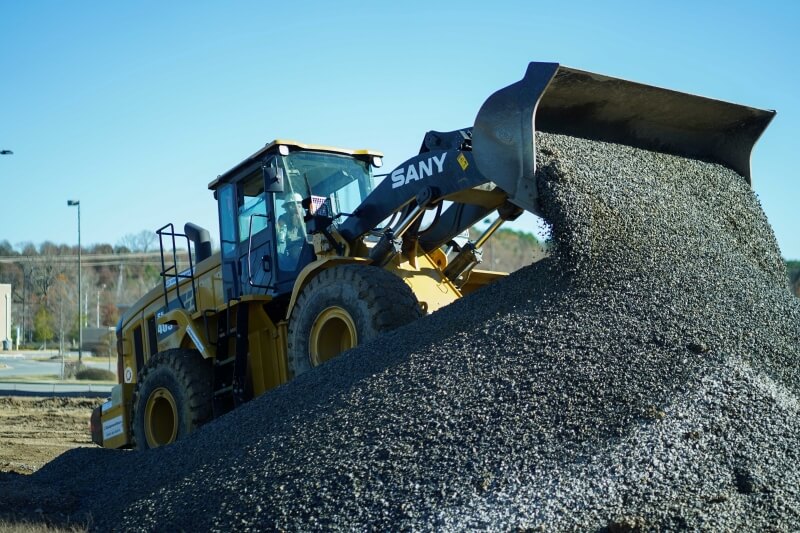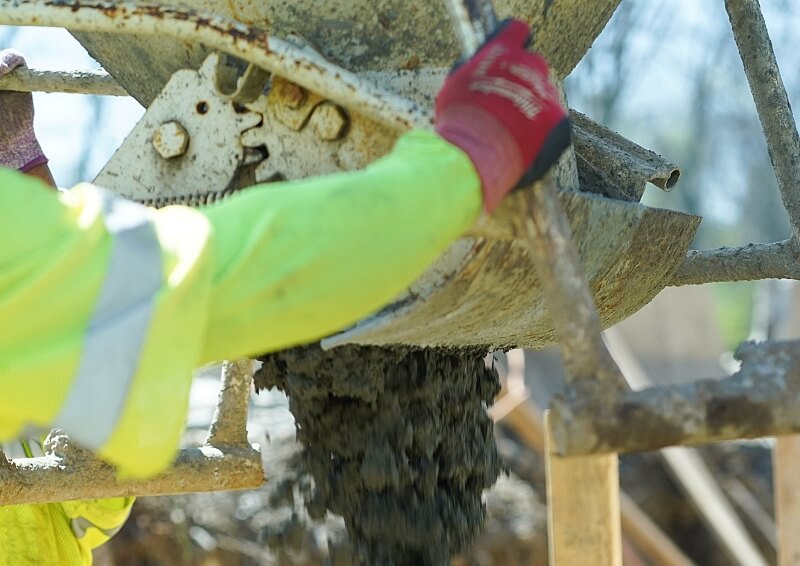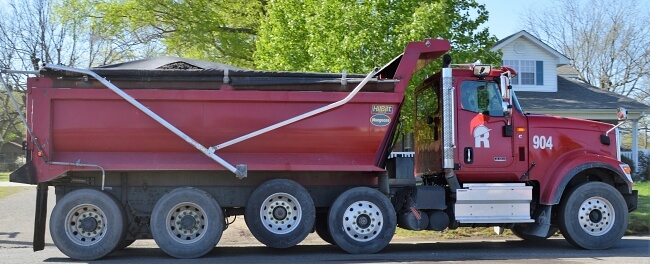Imagine if all the asphalt that gets torn up from roads and parking lots all over the country was taken straight to the landfill and forgotten about. Well, not too long ago, that’s exactly how it worked – tons and tons of mined materials and natural resources were being disposed of in dumps at an alarming rate…
Until asphalt recycling came along. Thanks to some impressive machinery, 80% of asphalt is recyclable nowadays (according to the Federal Highway Administration). Even asphalt roofing shingles are being recycled for aggregate! In this article, you’ll learn all about the asphalt recycling industry and how great it is for our planet.
How Asphalt Gets Recycled
Asphalt can be recycled through the process of milling. If you’ve ever driven on a road that’s under construction and encountered “uneven lanes”, the lane that’s lower down and a little rough has usually just been milled. Milling is a process in which the top layer of an asphalt surface is removed without disturbing the sub-base layer. The milled materials are often transported to an asphalt plant, where they’re prepared to be reused in another project. The use of milled materials makes for stronger, more durable asphalt.
Asphalt can also be recycled on site through the process of pulverization. Special equipment can be used to pulverize the road or parking lot into a renewed, reusable material. Pulverization is when the existing asphalt gets grinded up with the sub-base to create an extremely durable asphalt material that creates a new road or parking lot. This process usually negates the need for old materials to be transported off site and most of the time erases the need for new materials to be transported in!
Most of the time, on-site pulverization is preferred to milling because it’s cheaper, faster, and better for the environment.
However asphalt gets recycled, the materials lead to improved asphalt durability, higher stiffness, less likelihood of rutting and cracking, and lower asphalt maintenance.
Fun fact: Asphalt materials can be recycled over and over again without compromising its structural integrity, making it one of the most sustainable construction materials out there!

Environmental Benefits of Asphalt Recycling
Recycling asphalt has been so wonderful for our environment. Here are just a few ways using recycled materials in the asphalt industry is helping to save the planet:
- Saves Oil
- Cuts Down Transportation Emissions
- Saves Energy
- Doesn’t Use Landfills
- Conserves Minerals and Other Natural Resources
Did you know that the asphalt production industry uses tons and tons of oil each year? Using recycled materials decreases the need for new/virgin materials, and therefore it decreases the need for oil (and the United State’s reliance on foreign oil providers).
Since recycling asphalt usually means that very limited materials need to be transported on and off of the construction sites, trucks are emitting less toxins into the air and using less transportation resources like gasoline.
A crucial ingredient in asphalt is aggregate – a material made up of different types of hard minerals. Since recycling reduces the need for new materials, less of these precious natural resources are being mined out of our Earth!

Economic Benefits of Asphalt Recycling
Not only does using recycled asphalt materials help sustain our planet, it really helps our economy out, too! Since less transportation is going on, transportation costs have gone way down.
Not to mention that making roads and parking lots out of recycled materials is much more cost effective than using new materials. Your taxpayer dollars stretch a lot farther when your government opts for using recycled asphalt in their road projects! Thankfully, recycled asphalt has clearance in all 50 states.

The Future of Asphalt Recycling
The asphalt recycling industry has come a long way in recent years. In the earliest days, recycled materials were only used as filler. Now, asphalt can be recycled on-site and turned into a new, stronger surface!
Currently, the Federal Highway Administration (FHA) has stated that about 80% of all asphalt is being recycled. That’s pretty impressive, considering that it was 0% not too long ago. However, there is new equipment and machinery being worked on that may be able to take that number all the way up to 90% or even 100% in the near future.


Recent Comments